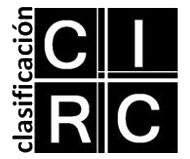Mediatic memory: nostalgia in pop culture
DOI:
https://doi.org/10.24215/16696581e152Keywords:
Mediatic memory, colective memory, cultura nostalgia, pop cultureAbstract
When we speak of nostalgia, we allude the emotive and sensitive part of the subjects, but necessarily it is also associated with memories, reminiscence, and memory. However, it is not only about the evocations we have personal or individually but also about the collective memories and experiences that groups share. In this article, we review several the oretical approaches that consider collective memory is fulfillingan elementary role fo runderstanding the identities reconstructed in the present. Some authors affirm that societies value memory more when identitiesenterinto crisis. Like wise, it is exposed that one of the consequences of the massification of popular culture, through the media and the entertainment industry, was the gestation of a collective memory of media type. Its a esthetic rescue, by generational groups, -regardles s of its commercial re-exploitation- is also serving as a socio-cultural referent to recognize the past of the subjects, create their own version of history and reflect on the present.
Downloads
References
Appadurai, A. (1990). Disjuncture and difference in the global cultural economy. Publicculture, 2(2), 1-24.
Assmann, A. (1996). Texts, traces, trash: The changing media of cultural memory. Representations, 56, 123-134.
Assmann, A. (2008). Transformations between History and memory. Social research, 75(1), 49-72.
Assmann, J. (1995). Collective memory and cultural identity. New German critique, 65, 125-133.
Assmann, J. (2006). Introduction: What is “Cultural memory”? En Religionand cultural memory: Ten studies (pp. 1-30). Standford, EUA: Standford University Press.
Assmann, J. (2011). Communicative and cultural memory. En Meusburger, P.; Heffernan, M. y Wunder, E. (Eds.). Cultural memories. The Geographical point of view (pp. 15-28). Dordrecht, Holanda: Springer.
Bal, M. (1999). Introduction. En Bal, M.; Crew, J. y Swpitzer, L. (eds.). Acts of memory. Cultural recall in the present (pp. vii-xvii). Hanover, EUA: University Press of New England.
Baudrillard, J. (1984). Interview: Game with vestiges. On the beach, 5, 19-25.
Bellah, R. N.; Madsen, R.; Sullivan, W. M.; Swidler, A. y Tipton, S. M. (1985). Habits of the heart: Individualism and commitment in American life. Berkeley, EUA: University of California Press.
Brabazon, T. (2005). From revolution to revelation: Generation X, popular memory and cultural studies. Aldershot, Inglaterra: Ashgate.
Coraiola, D.; Suddaby, R. y Foster, W. M. (2018). Organizational fields as mnemonic communities.
En Glückler, J.; Suddaby, R. y Lenz, R. (Eds.). Knowledge and Institutions (pp. 45-68). Dordrecht, Holanda: Springer.
Davis, J. (1989). The social relations of the production of history. En Tonkin, E.; McDonald, M. y Chapman, M. (Eds.), History and ethnicity (pp. 104-120). Londres, Inglaterra: Routledge.
De la Peza, C. (2001). El bolero y la educación sentimental en México. México, D.F.: Universidad Autónoma Metropolitana-Miguel Ángel Porrúa.
Durkheim, E. (2003). Las formas elementales de la vida religiosa. Madrid, España: Alianza Editorial.
Eyerman, R. y Turner, B. S. (1998). Outline of a Theory of Generations. European journal of social theory, 1(1), 91-106.
Hall, J. M. y Kondora, L. L. (2005). “True” and “false” child sexual abuse memories and Casey’s phenomenological view of remembering. American behavioral scientist, 48(10), 1339-1359.
Halbwachs, M. (2004). Los marcos sociales de la memoria. Barcelona, España: Anthropos.
Halbwachs, M. (1992). On collective memory. Chicago, EUA: The University of Chicago Press.
Maffesoli, M. (2004). El tiempo de las tribus. El ocaso del individualismo en las sociedades modernas. México, D.F.: Siglo XXI.
Maffesoli, M. (2014). El regresar del tiempo. Formas elementales de la posmodernidad. México: Siglo XXI.
Maffesoli, M. (2016). From society to tribal communities. The Sociological review, 64, 739-747.
Mannheim, K. (1993). El problema de las generaciones. Revista española de investigaciones sociológicas, 62, 193-242.
Misztal, B. (2003). Theories of social remembering. Maidenhead, Inglaterra: Open University Press.
Misztal, B. (2005). Memory and democracy. American behavioral scientist, 48(10), 1320-1338.
Nora, P. (1989). Between memory and history: Les lieux de memoire. Representations, 26, 7-24.
Nora, P. (1996-1998). Realms of memory: Rethinking the French past (3 vols.). Nueva York, EUA:
Columbia University Press.
Roediger III, H. L. y Wertsch, J. V. (2008). Creating a new discipline ofmemorystudies. Memorystudies, 1(1), 9-22.
Thompson, J. B. (1996). Tradition and self in a mediated world. En Heelas, P.; Lash, S. y Morris, P. M. Detraditionalization (pp. 89-108). Oxford, Inglaterra: Blackwell.
van Dijck, J. (2004). Mediated memories: Personal cultural memory as an object of cultural analysis. Continuum: Journal of media and cultural studies, 18(2), 261-277.
van Dijck, J. (2007). Mediated memories in the digital age. Standford, EUA: Standford University Press.
Winter, J. (2000). The generation of memory: Reflections on the memory boom in contemporary historical studies. Bulletin of the German Historical Institute, 27, 69-92.
Zerubavel, E. (1996). Social memories: Steps to a Sociology of the past. Qualitative Sociology, 19(3), 283-299.
Zerubavel, E. (2003). Time maps. Collective memory and the social shape of past. Chicago, EUA: The University of Chicago Press.
Downloads
Published
How to Cite
Issue
Section
License
La aceptación de un original por parte de la revista implica la cesión no exclusiva de los derechos patrimoniales de los/as autores/as en favor del editor, quien permite la reutilización, luego de su edición (postprint), bajo una Licencia Creative Commons Atribución-NoComercial-CompartirIgual 4.0 Internacional (CC BY-NC-SA 4.0)
Acorde a estos términos, el material se puede compartir (copiar y redistribuir en cualquier medio o formato) y adaptar (remezclar, transformar y crear a partir del material otra obra), siempre que a) se cite la autoría y la fuente original de su publicación (revista y URL de la obra), b) no se use para fines comerciales y c) se mantengan los mismos términos de la licencia.
La cesión de derechos no exclusivos implica que luego de su edición (postprint) en Question las/os autoras/es pueden publicar su trabajo en cualquier idioma, medio y formato; en tales casos, se solicita que se consigne que el material fue publicado originalmente en esta revista.
Tal cesión supone, también, la autorización de los/as autores/as para que el trabajo sea cosechado por SEDICI, el repositorio institucional de la Universidad Nacional de La Plata, y sea difundido en las bases de datos que el equipo editorial considere adecuadas para incrementar la visibilidad de la publicación y de sus autores/as.
Asimismo, la revista incentiva a las/os autoras/es para que luego de su publicación en Question depositen sus producciones en otros repositorios institucionales y temáticos, bajo el principio de que ofrecer a la sociedad la producción científica y académica sin restricciones contribuye a un mayor intercambio del conocimiento global.















































